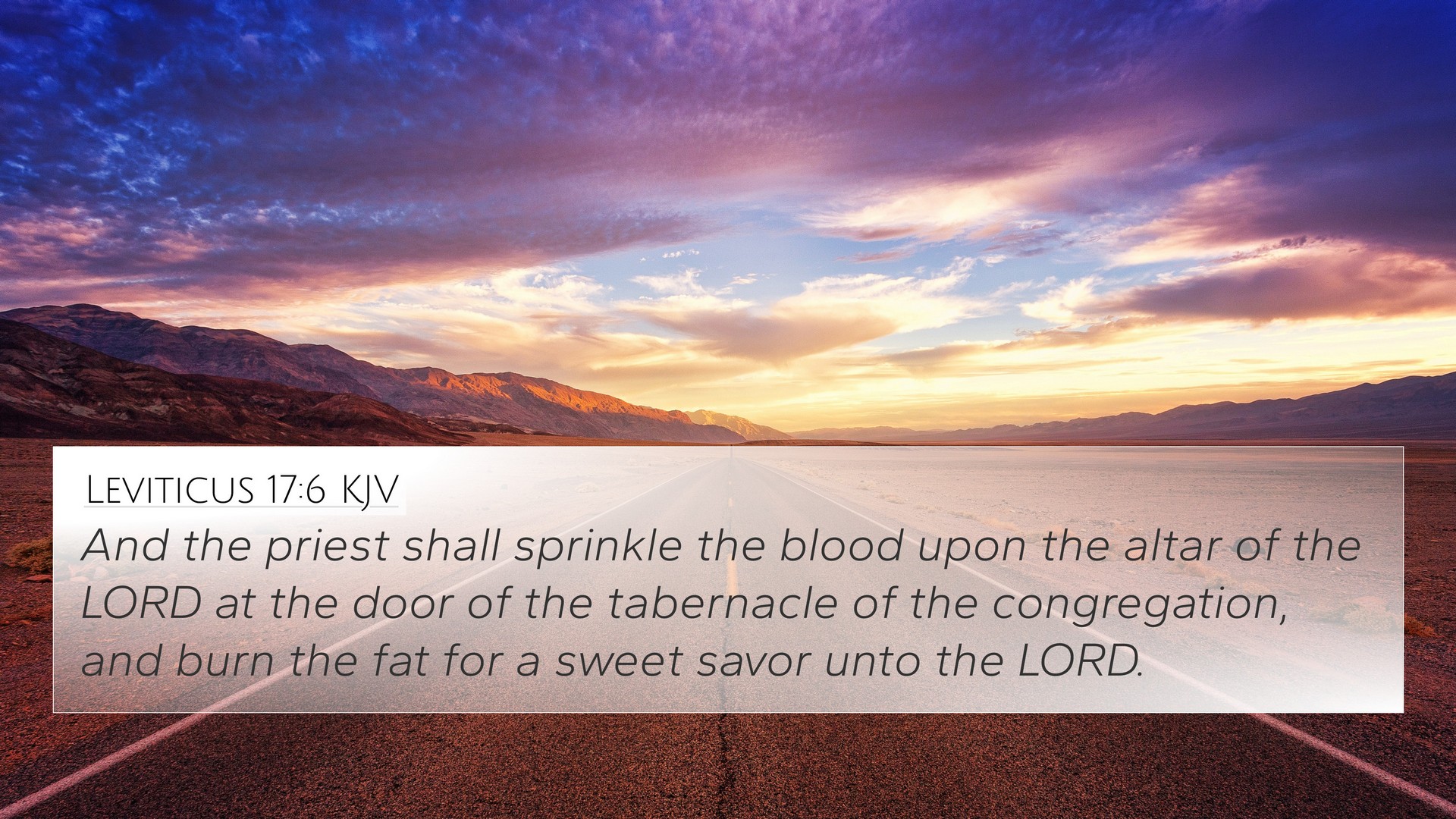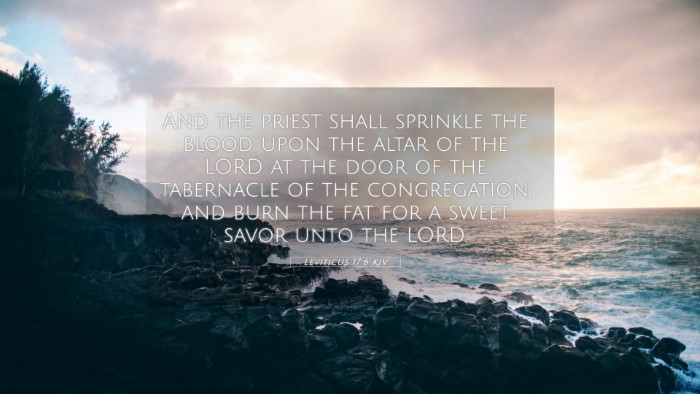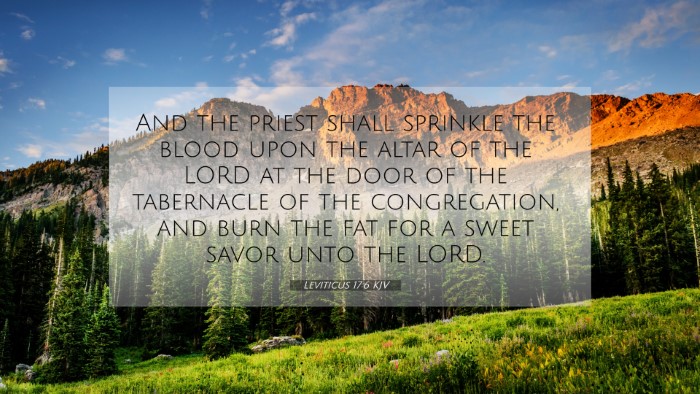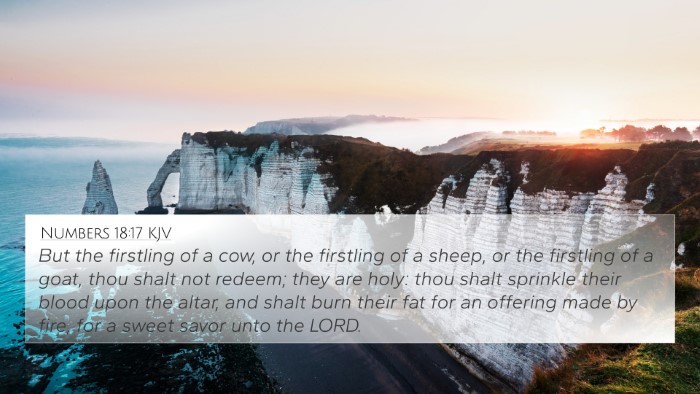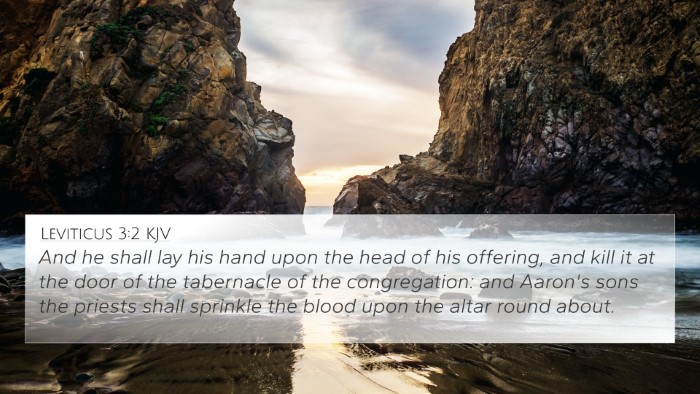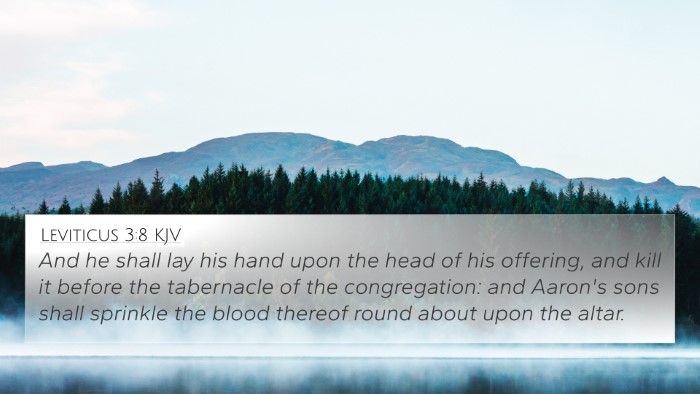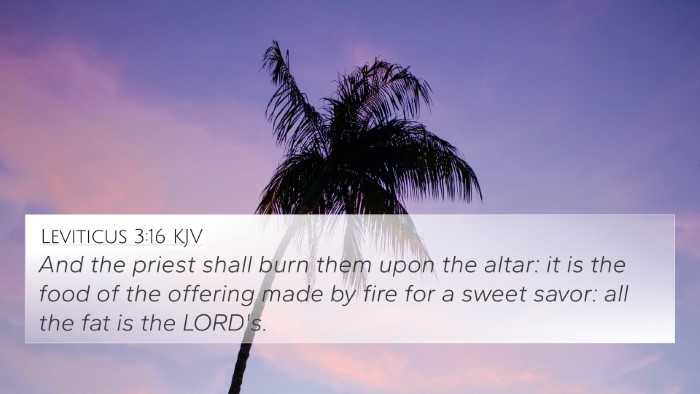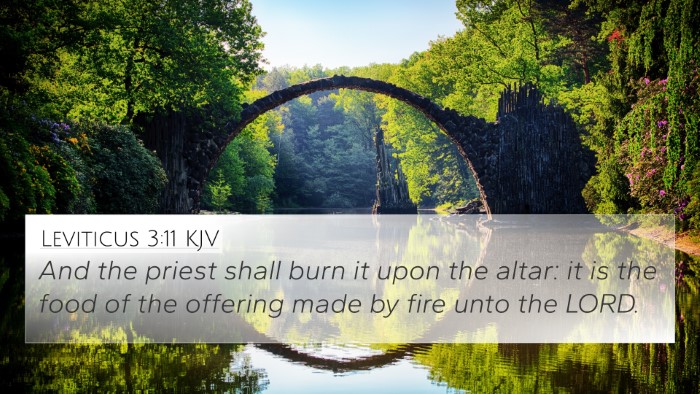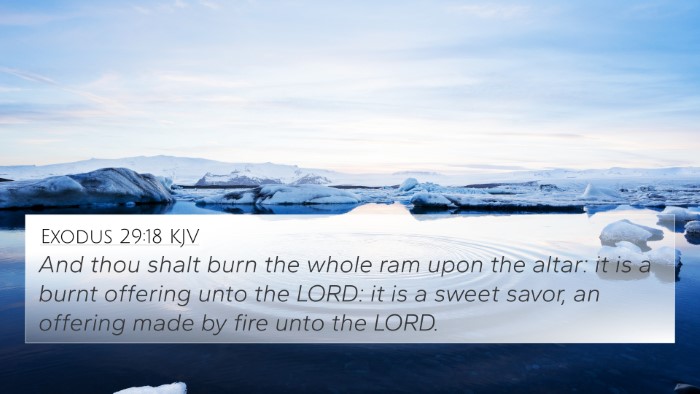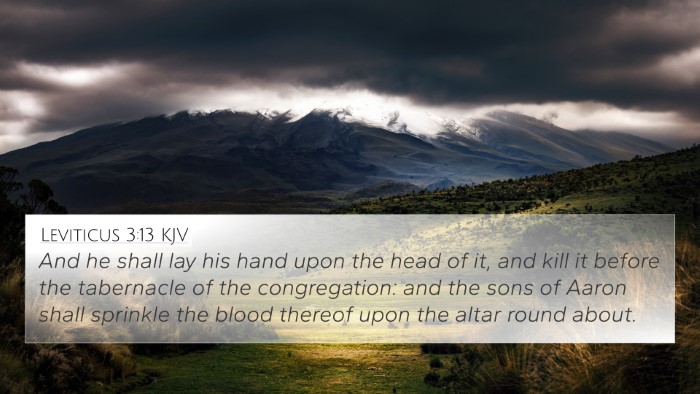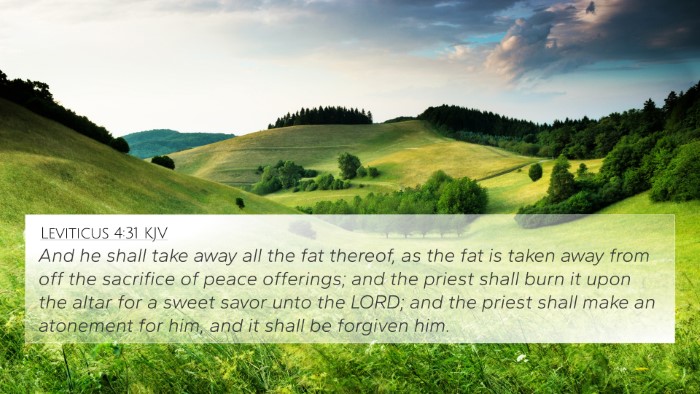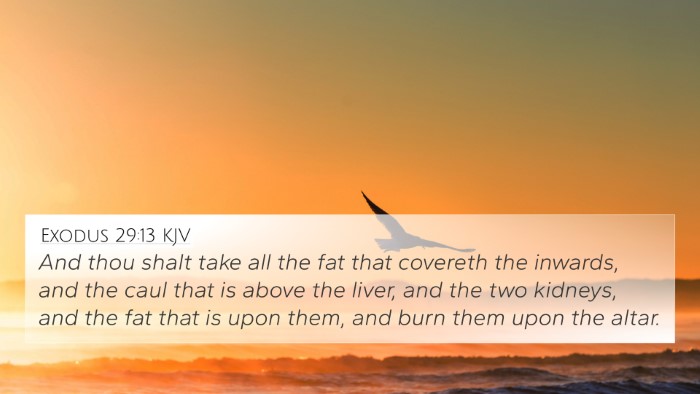Understanding Leviticus 17:6
Leviticus 17:6 states: "And the priest shall sprinkle the blood upon the altar of the Lord at the door of the tabernacle of the congregation, and burn the fat for a sweet savor unto the Lord." This verse encapsulates significant themes in the sacrificial system prescribed in the Levitical laws.
Insights from Public Domain Commentaries
Matthew Henry's Commentary
Matthew Henry emphasizes the importance of the blood in the sacrificial rites as a symbol of atonement and the necessity of obedience in worship. He notes that the priest's role in this process is pivotal, ensuring that the offerings are presented correctly before God, which signifies God's holiness and the people's need for atonement.
Albert Barnes' Notes
Albert Barnes focuses on the specificity of the ritual, highlighting that the act of sprinkling blood and burning fat on the altar signifies the life and sustenance God provides. He outlines how this reflects the believers' gratitude and the seriousness of sin, implying that proper sacrifices are essential for worship to be accepted by God.
Adam Clarke's Commentary
Adam Clarke elaborates on the historical context of sacrifices, emphasizing how this practice was essential in the Old Testament for maintaining the covenant relationship with God. He points out that the sprinkling of blood signifies purification and the burnt fat represents the best part of the offering, symbolizing total devotion to God.
Thematic Connections in Scripture
Leviticus 17:6 connects thematically to several Biblical passages:
- Hebrews 9:22 - "And almost all things are by the law purged with blood; and without shedding of blood is no remission." This emphasizes the necessity of blood for atonement.
- Exodus 29:12 - Discusses the role of blood in consecration, linking to the sacredness of sacrifices.
- 1 Peter 1:19 - "But with the precious blood of Christ, as of a lamb without blemish and without spot." Christ's sacrifice fulfills Old Testament sacrificial laws.
- Romans 12:1 - "Present your bodies a living sacrifice, holy, acceptable unto God." A call to offer ourselves in a manner reminiscent of Old Testament sacrifices.
- Leviticus 4:35 - Details on how the animal's fat is to be burnt, showing consistency in the importance of fat in sacrifices.
- Matthew 5:23-24 - "If thou bring thy gift to the altar, and there rememberest that thy brother hath ought against thee..." This illustrates the relational aspect of sacrifices and offerings.
- John 1:29 - "Behold the Lamb of God, which taketh away the sin of the world!" This connects to the sacrificial lamb in the Old Testament.
Exploring Cross-References
The verse has significant cross-references that enhance our understanding of its implications:
- Leviticus 1:15 - The role of priests in offerings.
- Leviticus 3:9 - Importance of fat in offerings sent up as sweet savor.
- Hebrews 10:4 - "For it is not possible that the blood of bulls and of goats should take away sins." Acknowledges the limitations of the Old Covenant.
- Isaiah 53:5 - "But he was wounded for our transgressions, he was bruised for our iniquities." Reflects how sacrifices point to Christ's atonement.
Conclusion: The Significance of Leviticus 17:6
In conclusion, Leviticus 17:6 serves as a vital link between ancient Jewish worship practices and the ultimate sacrifice of Christ. Understanding the principles outlined in this verse through the lens of various commentaries reinforces the importance of proper worship, the symbolism of blood, and the continuity of God's redemptive plan throughout Scripture.
Resources for Further Study
Utilizing tools for Bible cross-referencing can deepen the study of scriptures, revealing the relational and thematic elements woven throughout the Bible. Consider using a Bible concordance or a Bible cross-reference guide as resources for more effective cross-reference Bible study.
